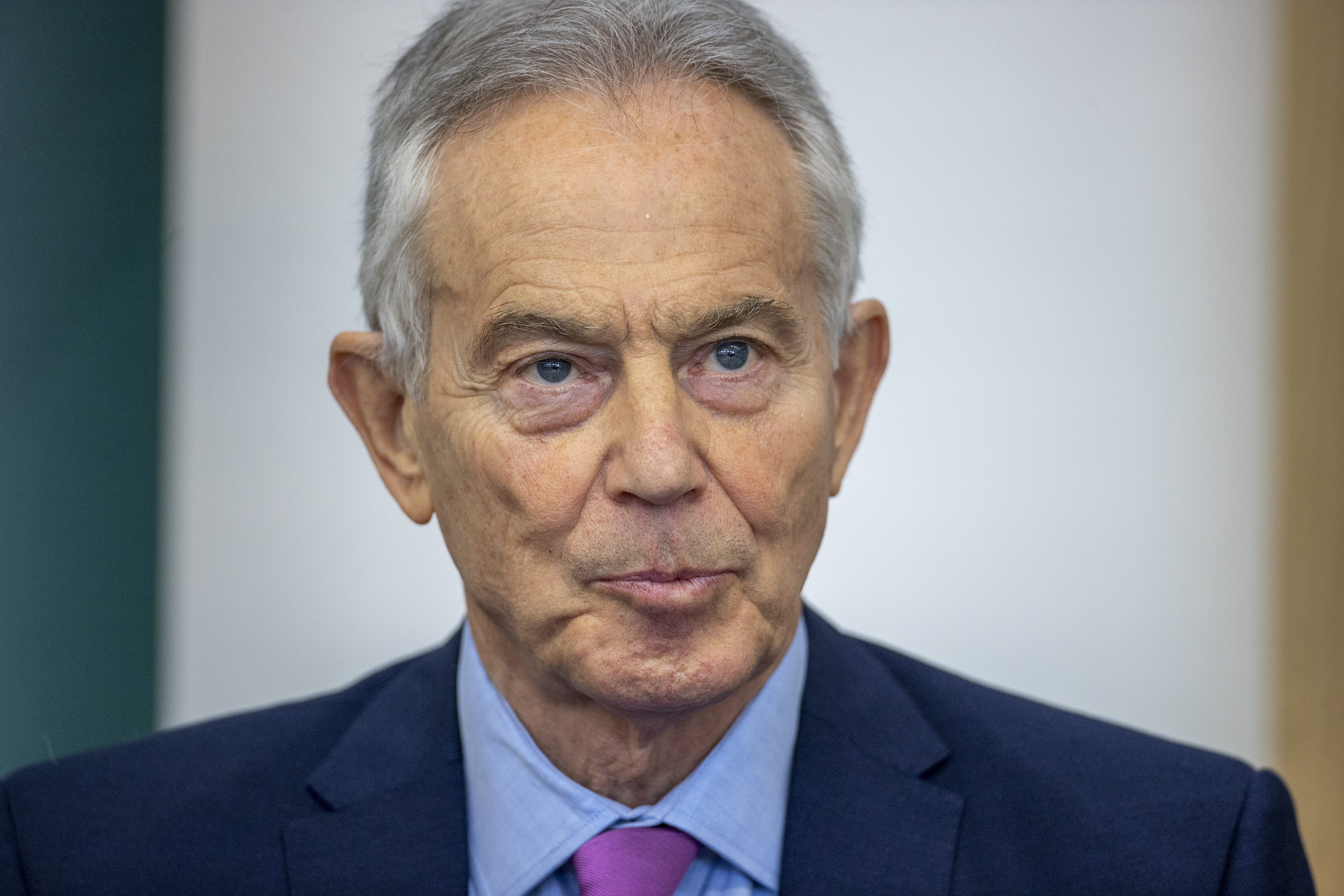Why is Starmer sticking two fingers up at Blair’s advice?
The former PM had his uses during the election campaign, when his political instinct offered Labour a guiding light back to power – so why is the new administration already casting aside his wisdom, asks Paul Clements


Your support helps us to tell the story
From reproductive rights to climate change to Big Tech, The Independent is on the ground when the story is developing. Whether it's investigating the financials of Elon Musk's pro-Trump PAC or producing our latest documentary, 'The A Word', which shines a light on the American women fighting for reproductive rights, we know how important it is to parse out the facts from the messaging.
At such a critical moment in US history, we need reporters on the ground. Your donation allows us to keep sending journalists to speak to both sides of the story.
The Independent is trusted by Americans across the entire political spectrum. And unlike many other quality news outlets, we choose not to lock Americans out of our reporting and analysis with paywalls. We believe quality journalism should be available to everyone, paid for by those who can afford it.
Your support makes all the difference.If I were to sum up in one sentence the strategy that won Keir Starmer a landslide at this general election, it would probably be: “Hey – do you guys remember Tony Blair?”
It’s a fair tactic – after all, the former leader was the most successful in Labour’s history. His 179-seat majority in 1997 was the high watermark that Starmer aimed for and, to his credit, came within a whisker of hitting.
As my Independent colleague John Rentoul has noted, Labour’s 174-seat majority this time is mathematically the same as New Labour’s, when adjusted for a smaller House of Commons: Blair won 63.5 per cent of 659 MPs, and Starmer won 63.4 per cent of 650.
While never a visible presence during the election campaign, it can now be revealed that the former prime minister was a useful mascot for “changed Labour”, and certainly a source of sage advice for candidate Starmer behind the scenes.
But now that the race has been categorically won, it’s time for him to gracefully step aside while his old band gets back to writing some songs for the next album. Right?
Blair’s congratulatory statement to Starmer published at the weekend suggests that he isn’t quite finished doling out sage advice to the new government – not all of which is being taken in the best spirits.
In a 1,500-word encomium shot through with common sense, the former PM urged the new administration to adopt two guiding principles: to get tough on crime, and avoid any vulnerability on “wokeism”. As Starmer’s administration gets busy at the start of its first working week in power, it has stuck two fingers up at both suggestions.
Let’s take them in turn. As part of a crackdown on crime, Blair urged the government to embrace digital ID cards, which have been made possible in the intervening years by advances in biometric technology and iris and fingerprint scanning. Blair envisions a paperless version of his old passion project that was born of the 9/11 attacks but which was snuffed out in 2010 by the Cameron coalition.
In hindsight, compulsory ID cards, coupled with the National Identity Register that Blair proposed, might well have enabled successive governments to prevent illegal migration and nip the small boats problem in the bud. If migrants needed an ID card to work or claim benefits, or get non-emergency treatment on the NHS, they might be less inclined to come here in the first place, denying the illegal people smugglers their steady revenue stream.
The measures might also have taken the wind out of Vote Leave before it became unstoppable, and even avoided the Brexit referendum altogether. It would certainly have helped protect people’s identities from fraud, and in the fights against both online crime and terrorism.
Despite home secretary Yvette Cooper claiming the new Labour administration would look at “all sources of advice” on the issue, business secretary Jonathan Reynolds has now ruled out the idea, and with the rather pat put-down: “That’s not something that’s part of our plans.”
I don’t think ID cards are the worst idea in the world. I remember the first time they were proposed, and the fears were that they might be weaponised as part of some Big Brother-style data collection racket – a clearly overblown notion cheerled by Baroness Chakrabarti and jumped on by a Conservative Party sick of sitting on the opposition benches.
Rolling out an compulsory ID card scheme today would be redundant when almost 85 per cent of people in England and Wales already have a passport. It would be expensive, too: if we’re going to need a card to do basic things like vote or get a job, then it makes sense for the government to shoulder the expense.
Meanwhile, life in the smartphone age has helped dilute any existential concern the public once had about personal data. At a click, we now give it away freely.
It’s true that, unlike most citizens on the continent, we don’t have the tradition of being required to carry an ID card; in 1952, Winston Churchill campaigned under the slogan "Set the people free" and his government abolished them. But a digital widget that we’d each keep on our smartphone? Who could disagree with that?
Starmer’s cabinet, apparently – even though Stephen Kinnock, when shadow immigration minister a year and a half ago, said that such a scheme would assure the public that “we have control of our borders”, and was being looked at “very, very carefully indeed”. Now the election is over, is someone trying to put Blair back in his box?
As for the former PM’s cautioning that Starmer’s government needs to “avoid any vulnerability on wokeism”, that intervention has most definitely been ignored.
Today, the prime minister announced Anneliese Dodds would be one of two ministers for women and equalities. (For reasons known only to the PM, she will share the brief with education secretary Bridget Phillipson.) Dodds is expected to champion a Bill that will make it easier to change gender by allowing a single family doctor to sign off a gender recognition certificate, rather than a panel of doctors and lawyers.
Her appointment prompted JK Rowling to remind her millions of social media followers of the time the minister was asked on Woman’s Hour what is a woman, and replied: “Well, I have to say that there are different definitions legally around what a woman actually is…”
Dodds’ boss, Phillipson, was just as reticent during the election campaign: when asked which loo a trans woman with a penis ought to use, she refused to answer the question eight times.
Blair, however, is not so ideologically troubled. He declared with his whole chest that he was “definitely of the school that says, biologically, a woman is with a vagina and a man is with a penis”, and derided politicians that got themselves into “a muddle” over the issue.
It must be deflating for Blair to be held up as the platonic ideal of a Labour government, and then have his ideas cast aside within days of the new guys waltzing into his old gaff. I suspect that will be the last we hear from him for a while. Which, for a government of all the talents, will be Starmer’s – and our – loss.
Join our commenting forum
Join thought-provoking conversations, follow other Independent readers and see their replies
Comments